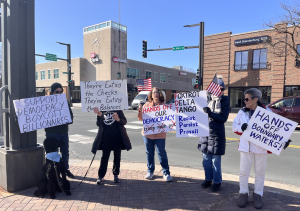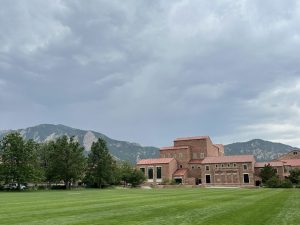Common Basket: Politics helps to define students
January 6, 2015
In the past, the Common Basket has gone towards safe causes such as clean water initiatives, orphanages in undeveloped countries, or food shelves, and by all means that’s great and necessary. However, I believe that we need to get students interested in what they’re donating to––not that clean water and world poverty are not interesting––but they tend to become redundant, are immediately unsolvable, and fail to pique students’ curiosity.
The common basket should embrace controversy. We are too focused on unmindfully throwing money at predictable causes. There should be a heavier focus on encouraging students to grasp the importance of what they are donating to and to further their action for the cause, other than monetarily, if they are so inclined. Presenting more political causes, left or right, every once in a while is a good opportunity to get students more educated, riled up, and thus, more active in the cause.
The common basket creates a lot of positive change for its beneficiaries. However, it also presents us with an educational opportunity for our student body. Recently, there was a common basket about fighting pollution in the Boundary Waters, a political issue with two defendable sides, that allowed students to discern their stance on an issue that affects them. Far too often, the Common Basket does not create this opportunity to learn and discern, but rather to mindlessly hoard money for an issue that not all students are involved in.
Politicized common baskets encourage students to discern and practice their own stance on an issue rather than mindlessly give to causes. Discernment is an important concept in our theology classes at BSM, and the Common Basket is another tool that religion teachers have to their advantage. The implementation of more politicized common baskets offers the opportunity to educate students on an issue, local or national, that could affect their lives. After education on issues that may appeal to them, students are poised to become active members of society that solve problems that matter.




































![Teacher Lore: Mr. Hillman [Podcast]](https://bsmknighterrant.org/wp-content/uploads/2025/03/teacherlorelogo-1200x685.png)












